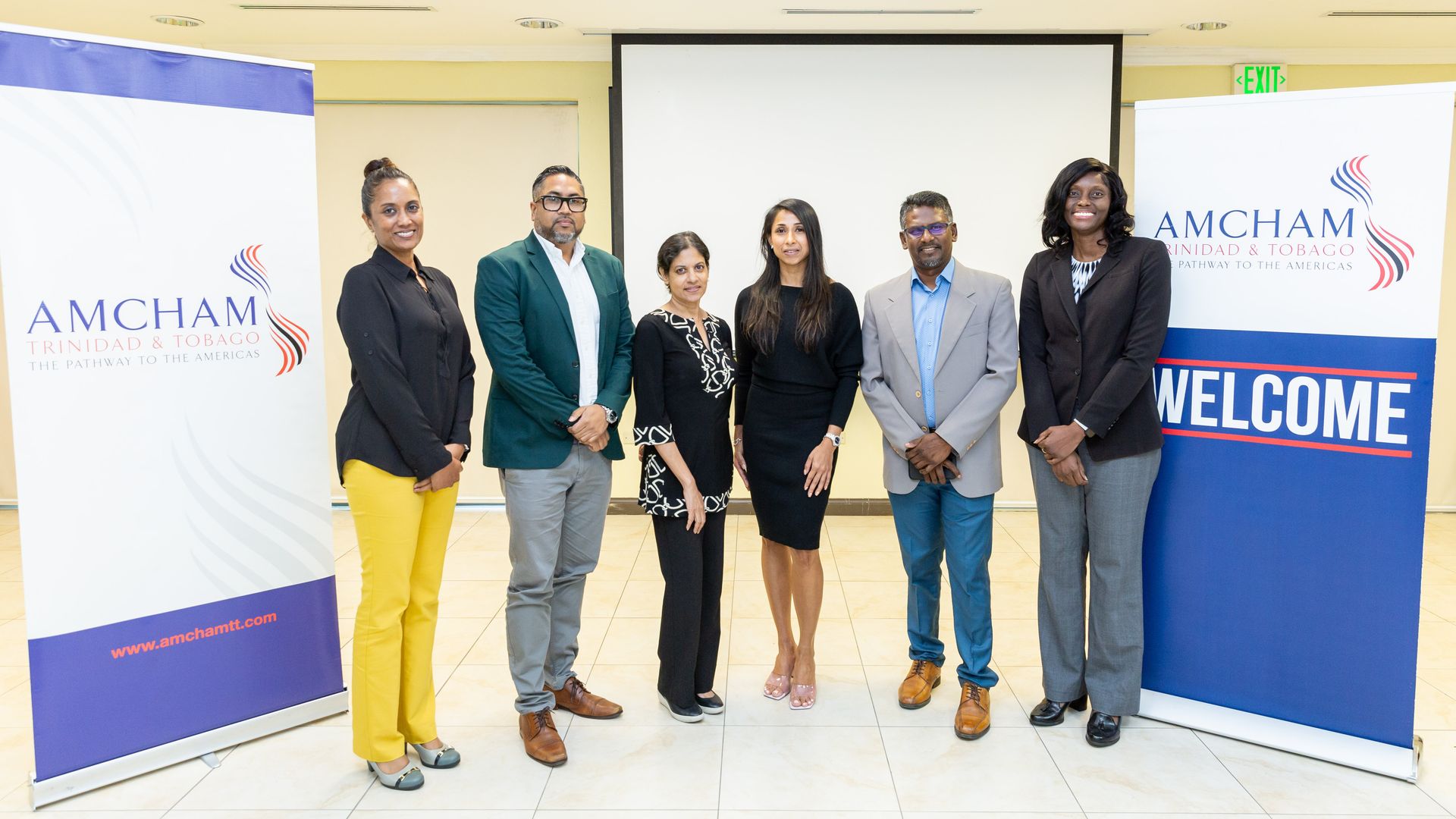Facing Occupational PTSD

LINKAGE Q3 (2023) - LEARN, EMPOWER, SUSTAIN
While there have been numerous studies on post-traumatic stress disorder (PTSD) conducted since the 1950s, the prevalence, risk factors and impact of this disorder following traumatic events in occupational settings remain unclear.
For the most part, occupational PTSD refers to the persistent thoughts and memories of a work-related trauma long after the actual stress event occurred. It usually occurs when someone experiences work-related trauma that causes symptoms for 4 weeks or longer. It can also be triggered by negative working conditions such as constant stress, bullying, long hours, layoffs, and humiliating or disappointing events.
In October, AMCHAM T&T hosted a Pre-HSSE Conference session on the topic of occupational PTSD at the Nutrien Employee Center at the Point Lisas Industrial Estate. The session sought to enhance employer's knowledge and awareness of how post-traumatic stress from significant events that may occur both in and out of the workplace can impact workers. It also formed part of AMCHAM T&T’s continued efforts to promote mental wellness in the workplace.
Melissa Pierre, Senior Trade and Policy Specialist at AMCHAM T&T, said “The workplace environment should be a safe space for all. Safety doesn’t end at simply enabling preventative measures or policies to prevent an accident in the workplace. Every organisation needs to have leaders addressing and providing the necessary support when their employees are dealing with traumatic events.”
Employers need to create a psychosocial work environment that promotes suitable training of employees, social support from colleagues and managers, and proper follow-up of employees after a critical event. HSE policies should have clear incident management protocols in place that are regularly reviewed and updated to meet with the latest threat or potential traumatic event.
Occupational Medicine Specialist Dr. Ishta Rampersad said “The diagnostic criteria for occupational PTSD remain the same as PTSD, except that the circumstance must be that the person witnessed or experienced the trauma as a direct result of work.”
Workers on duty after a disaster had a high prevalence of PTSD. “After the terror attacks on the World Trade Center on September 11, 2001, the prevalence of clinician-measured PTSD 4 years post-trauma was 8.4%. After 11–13 years, 9.7% had current, 7.9% had remitted, and 5.9% had partial PTSD.”
Occupational Medicine Specialist Dr. Wayne Ramgoolam said that several risk factors among workers can be associated with an increased risk of occupational PTSD, such as negative working conditions, layoffs, workplace stress, witnessing significant accidents, severity of personal injuries, frequency of exposure, personality issues, marital status, having negative interpersonal relationships, and a history of mental disorders or occurrence of psychiatric symptoms at the time of the event.
“The majority of people are able to deal with their traumatic experiences well and rarely develop PTSD after a traumatic experience. These findings suggest that for some workers, PTSD is an outcome of failure in recovery rather than the natural result of the traumatic exposure.”
Charlene Gowrie, Organisational Psychologist, Corporate Coach and IR Advisor, said companies and employers are beginning to become aware that it is not just “someone having a bad day”, and Cindi Nandlal, HSSE Manager at Point Lisas Nitrogen Limited, said leaders cannot bury their heads in the sand and think this will never happen here. “The inherent nature of high-risk organizations means we must prepare for these types of impacts,” she added.
Nandlal says a key role of organisations like AMCHAM is to support leaders in industries to understand how issues like post-traumatic stress from events like crime or being involved in major accidents can have deep-seated impacts on the organisation and employees. “We cannot force all leaders in organisations to be more people-centred, but we can certainly do our best at lobbying and influencing for change by this kind of discourse.”

(l-r) Cindi Nandlal - HSSE Manager (Point Lisas Nitrogen Limited); Dr Wayne Ramgoolam - Occupational Medicine Specialist; Charlene Gowrie - Organizational Psychologist Corporate Coach; IR Advisor; Dr Ishta Rampersad - Occupational Medicine Specialist; Balchan Jadoonanan - HSSE Manager (DeNovo Energy Limited) and Chair of AMCHAM T&T’s HSE Committee; Melissa Pierre - Senior Trade and Policy Specialist (AMCHAM T&T)